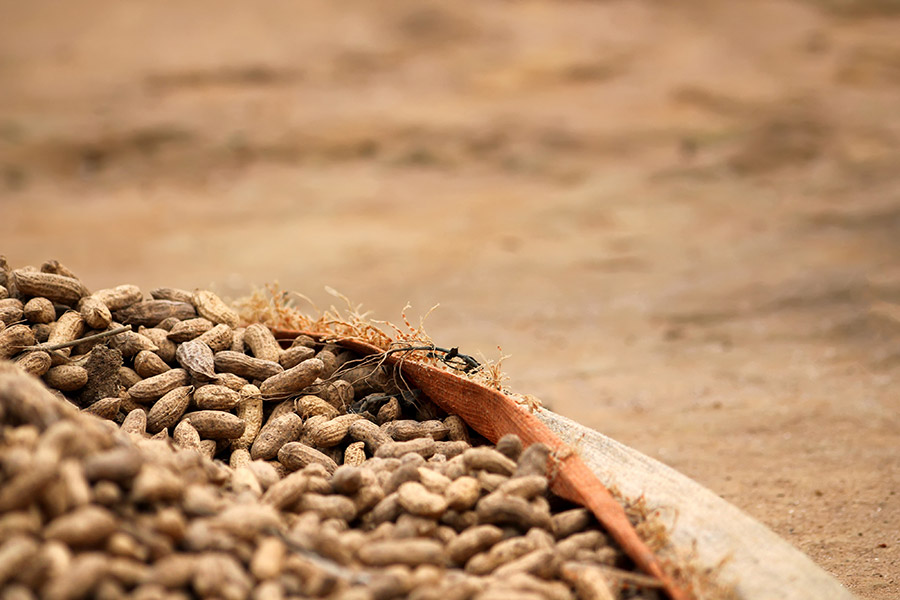Senegal: Reducing Groundnut Contamination

Project Description
The Global Food Safety Partnership (GFSP) database shows that international donors spent $383 million to support 323 projects to improve food safety throughout Africa between 2010 and 2017. However, the scientific evidence on the burden of foodborne diseases in Senegal—including the risk of contamination in groundnuts—and the effectiveness of food safety mitigation strategies is limited.
This project, led by Jonathan Bauchet of Purdue University, is conducting a landscape overview study to understand and catalog current food safety initiatives and investments taking place in Senegal, including food safety activities funded by USAID and other donors. In addition, a pilot study is assessing the extent of microbial and fungal contamination in groundnuts produced and consumed by rural Senegalese households. At all stages of production, processing, and storage, groundnuts are vulnerable to microbial and fungal contamination that can lead to foodborne illness. The most acute health consequences come from carcinogenic aflatoxins, but the present risk level of fungal and microbial contamination is largely unknown, as is farmers’ awareness of and willingness to use technology to reduce contamination.
This project is generating new insights on the state of food safety of groundnuts and an understanding of the points in production, storage, and processing where food safety interventions can reduce fungal and bacterial contamination. For Senegal’s food system, more information on the prevalence of foodborne diseases at the national and local levels will aid in establishing legal norms and on-the-ground monitoring and enforcement systems to reduce food contaminants.

